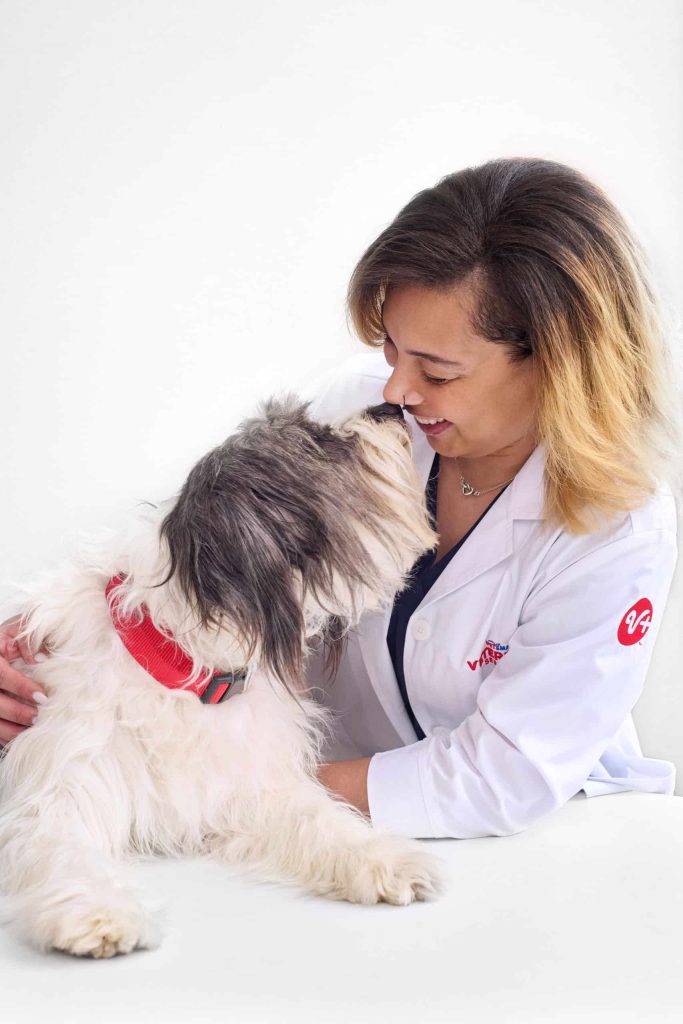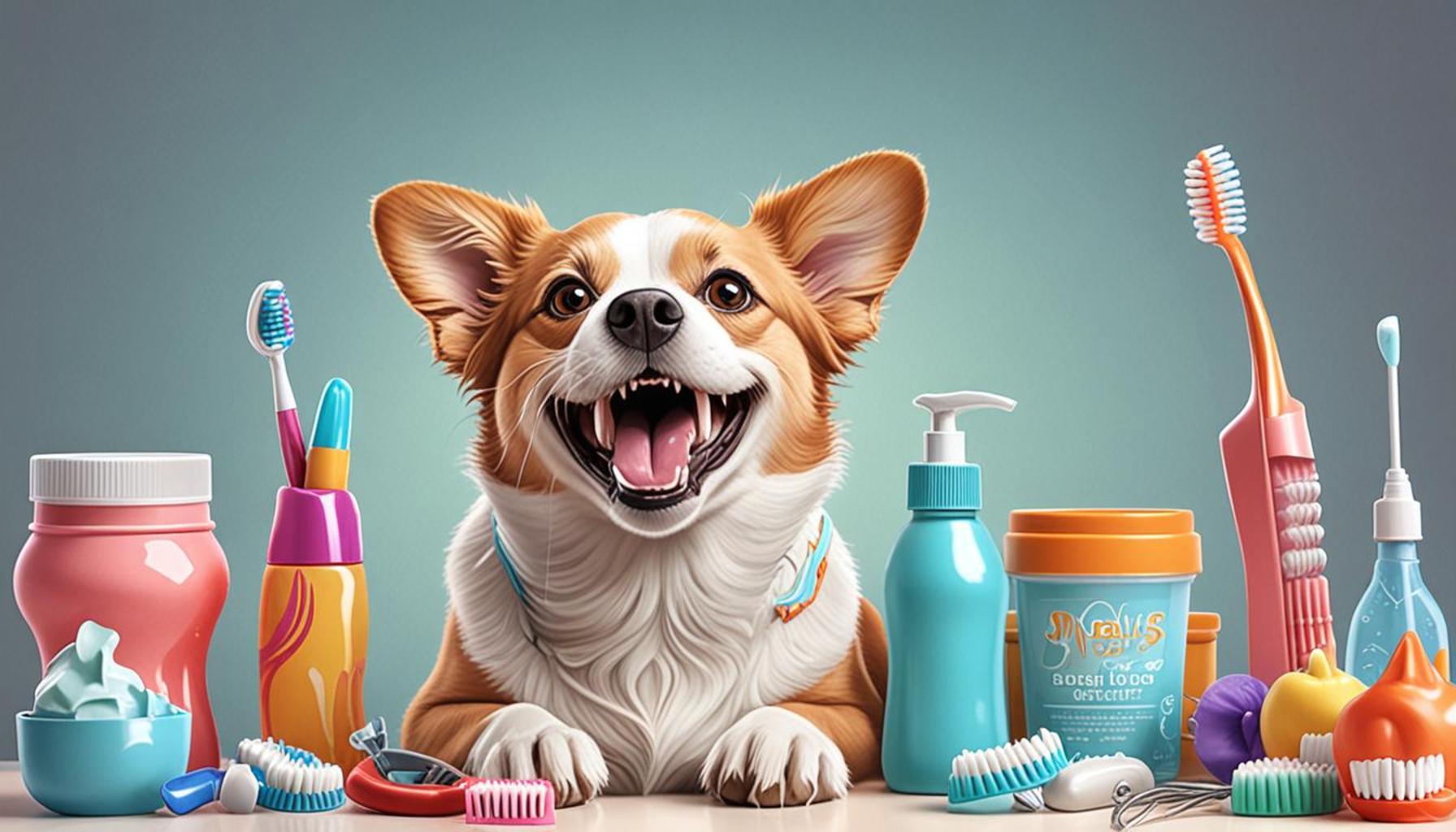Preventive Care: Vaccines and Regular Check-ups for Pets

Understanding Preventive Care for Your Furry Friends
Every pet owner wants a happy and healthy companion. Yet, many overlook a crucial element in achieving this: preventive care. By prioritizing vaccines and regular check-ups, pet parents can play a significant role in safeguarding their furry friends’ health.
What is Preventive Care?
Preventive care consists of measures taken to prevent diseases or injuries rather than treating them after they occur. This forward-thinking approach serves as your pet’s first line of defense. Key aspects include:
- Vaccinations: Vaccines are crucial in protecting pets from common and serious diseases. Examples of vital vaccinations for dogs include rabies, canine distemper, and parvovirus. Similarly, cats may need vaccinations for feline herpesvirus and feline leukemia, among others. These vaccines help build immunity and can save your pet from severe health issues.
- Regular Wellness Exams: Routine check-ups allow veterinarians to conduct thorough health assessments. During these visits, vets can perform essential tests for early detection of health issues such as heartworms, diabetes, and kidney disease, which are often asymptomatic in their early stages.
- Dental Check-ups: Just like humans, pets require regular dental care. Routine dental check-ups help maintain oral health, prevent infections, and can even avert more serious complications like heart disease, which can stem from untreated dental issues.
Why It Matters
Routine preventive care could significantly impact your pet’s health and longevity. The benefits include:
- Improved Lifespan: Pets that receive regular preventive care tend to live longer, healthier lives. Studies suggest that routine veterinary visits can extend a pet’s life by several years.
- Reduced Risk of Costly Emergency Treatments: Addressing health issues early can avoid the stress and financial burden of emergency treatments, which can be extremely costly. A simple vaccination could prevent serious diseases that require extensive treatment.
- Enhanced Overall Quality of Life: Pets that regularly receive care are often happier and more energetic, contributing to a more fulfilling life for both the pet and the owner.
Insights from the American Veterinary Medical Association (AVMA) emphasize that a tailored approach to preventive care is vital. This personalized strategy not only helps maintain your pet’s good health but also nurtures a stronger bond between pets and their owners, as animals are regularly assessed and cared for in a comprehensive way.
As a pet owner, it is essential to recognize that preventive care is a journey, not a destination. With informed choices and regular check-ups, you can significantly enhance your pet’s well-being. The road to optimal health starts today, encouraging you to prioritize your pet’s preventive care practices and ensuring they remain the vibrant companions you cherish.

DIVE DEEPER: Click here for insights on obedience training
The Importance of Vaccinations for Your Pets
Vaccinations are an essential component of preventive care for pets, acting as a formidable barrier against various diseases that could jeopardize their health. In the United States, vaccines are readily available for a range of conditions, and they play a critical role in ensuring pets lead healthy lives. Each year, veterinarians recommend a tailored vaccination schedule based on your pet’s age, breed, lifestyle, and vulnerable health conditions.
Core Vaccinations for Dogs and Cats
When it comes to safeguarding your pets, certain vaccines are deemed core vaccines—they are vital for all pets regardless of their lifestyle. For dogs, core vaccinations include:
- Rabies: This deadly virus is transmissible to humans and is required by law in many states.
- Canine Distemper: A highly contagious disease with a high mortality rate, affecting the respiratory, gastrointestinal, and central nervous systems.
- Parvovirus: A severe and often fatal viral infection that primarily affects puppies.
For cats, the list of core vaccines includes:
- Rabies: Similar to dogs, rabies vaccinations are crucial for cats and often legally mandated.
- Feline Herpesvirus: This common viral infection can lead to severe respiratory issues.
- Feline Calicivirus: Another respiratory virus that can cause significant illness in cats.
It’s crucial to consult your veterinarian regarding additional non-core vaccines based on your pet’s exposure risk, such as those for leptospirosis in dogs or feline leukemia in cats.
Regular Check-ups: A Proactive Approach to Health
Regular wellness exams are another cornerstone of preventive care. These check-ups offer pet owners the chance to monitor their animal’s health closely. During a routine visit, veterinarians complete comprehensive evaluations that may include:
- Physical Examination: A thorough inspection to identify any irregularities or early symptoms of health issues.
- Diagnostic Tests: Bloodwork can reveal underlying conditions and determine organ function.
- Parasite Control: Tests and prevention strategies for worms, fleas, and ticks are essential at every visit.
Early detection of health problems is key in effectively managing your pet’s health. Vets can recommend lifestyle adjustments or initiate treatment plans that could prevent conditions from escalating into more serious issues. In fact, proactive care can lead to a healthier, longer life for your beloved pet.
By embracing the principles of preventive care through regular vaccinations and check-ups, you create a wellness framework that supports your pet’s long-term health. Investing time and resources in these essential practices is not only beneficial but vital for ensuring the happiness and longevity of your furry family members.
| Advantage | Description |
|---|---|
| Early Detection | Regular check-ups allow veterinarians to detect potential health issues before they become serious, enhancing the quality of life. |
| Disease Prevention | Vaccines protect pets from a variety of serious diseases, which could otherwise lead to costly treatments or fatalities. |
| Longevity | Investing in preventive care can extend the lifespan of pets, keeping them with their families for longer. |
| Peace of Mind | Regular veterinary visits provide pet owners with assurance about their pet’s health and wellbeing, reducing stress about unforeseen illnesses. |
In exploring the theme of “Preventive Care: Vaccines and Regular Check-ups for Pets,” it’s vital to realize how these factors intertwine to foster a healthier pet population. Understanding the importance of vaccinations that protect against diseases such as rabies, parvovirus, and distemper can empower pet owners to take informed actions. Furthermore, annual or bi-annual check-ups provide opportunities for veterinary professionals to discuss nutrition, dental care, and behavior, ultimately contributing to a holistic view of pet care.Modern veterinary practices often utilize technologies such as electronic records and diagnostic equipment to streamline the care process. This means pet owners can enjoy more efficient services during their visits, ensuring that critical health metrics are monitored continuously. Don’t overlook the potential health benefits that stem from regular veterinary attention, as they pave the way for a happier, healthier life for your beloved pets.
DIVE DEEPER: Click here to learn more
The Role of Regular Vaccinations in Disease Prevention
In addition to core vaccines, the importance of regular vaccinations cannot be overstated. Pets, much like humans, are at risk for diseases that evolve and adapt over time. Vaccines serve as a shield, protecting them from evolving strains of viruses and bacteria. For instance, the consistently changing nature of the canine flu virus necessitates annual vaccinations to combat this respiratory illness effectively. Without appropriate vaccinations, your dog is potentially vulnerable to infections that could have been prevented.
Behavioral Changes Post-Vaccination
It’s essential to be cognizant of any behavioral changes following vaccinations, which can indicate how your pet is responding to the vaccine. While most pets experience mild side effects like lethargy or decreased appetite, monitor your pet for more severe reactions such as vomiting or difficulty breathing. These can be indications of an allergic reaction, requiring immediate veterinary attention. Adequately tracking your pet’s behavior post-vaccination is crucial in ensuring their health and safety.
Vaccination Schedules: A Tailored Approach
Because each pet is unique, it is critical to adhere to a personalized vaccination schedule designed by your veterinarian. For puppies and kittens, an essential early vaccination series typically begins between six to eight weeks of age and continues until they reach about four months. This series helps develop immunity while their bodies are still maturing. After the initial doses, most vaccines require booster shots to maintain effectiveness.
Furthermore, older pets may require updated vaccines or boosters, depending on their exposure risk and overall health condition. For certain breeds more susceptible to specific diseases, like Boxers and Doberman Pinschers with a higher vulnerability to Parvovirus, the need for vigilant vaccination becomes more pronounced.
The Financial Aspects of Preventive Care
Investing in preventive care through regular vaccinations and check-ups can significantly offset long-term veterinary expenses. A recent study highlighted that the cost of treating a preventable disease can far exceed the cost of vaccinations—often tenfold. For example, a single treatment for canine parvovirus can range from $1,000 to $3,000, displaying the tangible financial benefits of a proactive approach to your pet’s health. Regular veterinary visits and vaccinations can ultimately enhance not just the life span but the quality of life of your pet, reducing the potential for debilitating diseases later in life.
Staying Current with Veterinary Recommendations
The landscape of pet health care is continually evolving, driven by advancements in veterinary medicine and emerging health threats. It is crucial for pet owners to stay informed about vaccinations that may not have been part of the traditional core vaccines. To protect pets against diseases prevalent in certain regions—such as Lyme disease in wooded areas or kennel cough in urban pet communities—vaccines and parasite prevention must be adapted to the environment and lifestyle of your pet.
It’s beneficial to engage in an open dialogue with your veterinarian about these recommendations. They can provide valuable insights on emerging diseases, preventive measures, and personalized advice tailored to your pet’s specific needs.
DIVE DEEPER: Click here to learn more
Conclusion: The Importance of Preventive Care for Pets
In summary, preventive care through regular vaccinations and check-ups is essential for ensuring the long-term health and well-being of our beloved pets. These proactive measures not only protect against potentially serious diseases but also play a crucial role in fostering a higher quality of life. As veterinary medicine continues to evolve, staying informed about the latest vaccine recommendations and preventative health protocols is crucial for pet owners.
By establishing a tailored vaccination schedule and maintaining consistent veterinary visits, pet owners can significantly reduce the risk of preventable diseases, ultimately avoiding expensive treatments down the line. Moreover, understanding your pet’s specific health needs based on their breed, age, and lifestyle will empower you to make the best decisions for their care.
Additionally, recognizing behavioral changes after vaccinations and communicating openly with your veterinarian can further enhance your pet’s health journey. With studies indicating that the cost of treatable diseases can outstrip preventative measures significantly, it is clear that investing in preventive care is both a financially and emotionally wise choice. By prioritizing regular check-ups and vaccinations, you ensure that your furry companions lead healthy, happy lives, free from the burden of debilitating illnesses.
Take the initiative today to engage in proactive conversations with your veterinarian. Together, you can develop a comprehensive preventive care plan that not only safeguards your pet’s current health but also sets the foundation for a vibrant and fulfilling future.


